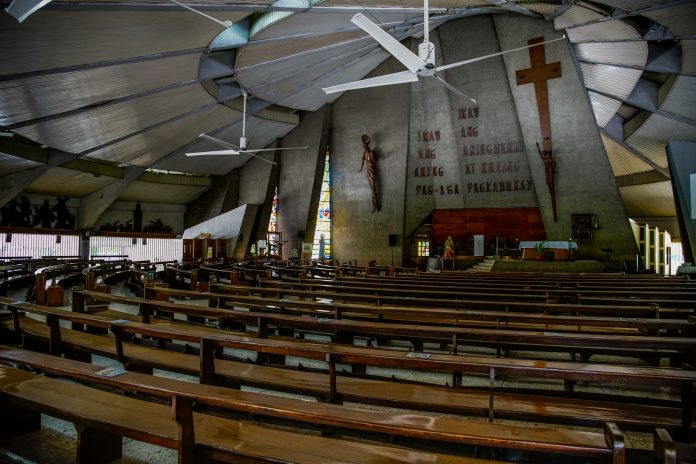BISHOP Broderick Pabillo, apostolic administrator of the Archdiocese of Manila, reiterated his appeal to the Philippine government to allow the public celebration of religious activities.
“Religious activities should not be necessarily considered as mass gatherings,” he said, adding that the Church has “safeguards” to control the people who attend religious services.
The prelate said it is unfair to limit church attendance to ten people if churches are big enough compared to establishments that have already opened.
Bishop Pabillo said the celebration of online Masses “are not the same as the real Eucharist.”
“For this we clamor to the [authorities] to consider religious service as essential services and not just consider us in the category of entertainment, among movies, and beauty salons,” he said.
Mass gatherings, including religious activities and services, are still prohibited in the Philippine capital, which remains under general community quarantine.
The public celebration of Masses was suspended when the government imposed the “enhanced community quarantine” in March to prevent the spread of the new coronavirus disease.
Priests, however, continued to celebrate Masses that were streamed online on social media and broadcast on radio and television.
The Archdiocese of Manila has earlier submitted to the government guidelines for religious services, including an appeal to consider religious services as “essential needs” of the people.
Bishop Pabillo said attending online Masses “is the same as watching a birthday party or Christmas party online.”
“It’s not the same as being in the party itself,” he said. “In these online Masses we are deprived of Holy Communion,” added the prelate.
The bishop of Manila said participating in an online Mass “helps us spiritually” because one hears the words of God.
“It helps you to pray. You become part of a worshipping community, but deep down we know it’s not the Mass,” he said.
Bishop Pabillo said “virtual” is not enough because people want the real thing.
“Our celebration with God and our relationship with him is something that is real, actual and cannot be reduced to virtual,” he said.
The prelate said he made the appeal to authorities because “there is a need to speak out because for us the Eucharist is important.”
“The Eucharist is important to us, we fight for what is important,” he said.
The Catholic Church on Sunday celebrated the Feast of Corpus Christi, also known as the Solemnity of the Most Holy Body and Blood of Christ.









